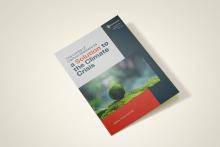Sovereign Debt News Update No. 134: Navigating Sovereign Debt Crisis and Legal Battles Amid Political Instability: Afreximbank vs South Sudan
South Sudan highlights the precarious position the country finds itself in, both financially and politically. The country is in a serious state of political decomposition due to the protracted conflict, making it difficult to fully engage in the ongoing legal battle with Afreximbank. Undoubtedly, any escalation in the political and security environment could further impede South Sudan’s negotiations with creditors like Afreximbank. With substantial debt obligations and an unstable political environment, South Sudan is at a critical juncture in its post-conflict reconstruction efforts. The Afreximbank case underscores the challenges faced by African nations in managing sovereign debt while balancing economic development with political stability.
As South Sudan navigates this complex situation, the international community's role in fostering dialogue, ensuring peaceful resolutions, and supporting sustainable economic policies will be crucial. Whether South Sudan can emerge from this crisis without further destabilizing its fragile governance system will depend largely on its ability to address its debt burdens and maintain peace within its borders.

